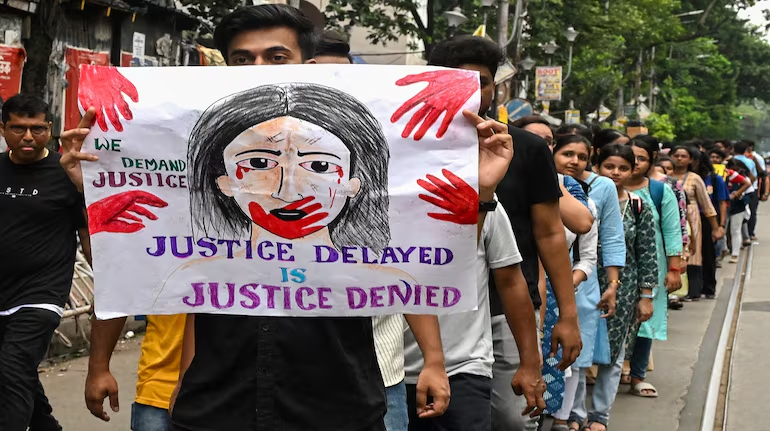The recent brutal rape and murder of a trainee doctor at Kolkata’s RG Kar Medical College has sent shockwaves across India, leading to widespread protests and a nationwide strike by the medical community. This tragic incident has reignited the debate over the safety of healthcare professionals, especially women, and has put the spotlight on the urgent need for stronger protection laws in India.
The Incident and its Fallout
On August 9, 2024, the body of Dr. Moumita Debnath, a postgraduate trainee at RG Kar Medical College, was discovered in a seminar hall on the college campus. An autopsy confirmed that she had been raped and murdered. The incident not only sparked outrage in Kolkata but quickly escalated into a national issue, with doctors across the country calling for justice and enhanced safety measures in hospitals.
The medical community’s response was swift and unified. The Indian Medical Association (IMA), along with the Federation of Resident Doctors Association (FORDA) and the Federation of All India Medical Association (FAIMA), called for a nationwide strike to protest the incident and demand immediate action. The strike, which saw the participation of doctors from both government and private hospitals, severely disrupted healthcare services across India.
Impact on Healthcare Services
The strike had a significant impact on healthcare services, with outpatient departments, elective surgeries, and non-essential medical services coming to a halt in many parts of the country. In West Bengal, where the incident occurred, the strike led to a near-total shutdown of healthcare services, with only emergency services remaining operational. The strike extended to other states, including Jharkhand, Assam, Kerala, Karnataka, and Delhi, causing widespread disruption in patient care.
Patients were left stranded, with many being forced to reschedule their appointments or seek treatment elsewhere. While emergency services continued, the strike underscored the delicate balance between advocating for the rights and safety of healthcare workers and ensuring uninterrupted patient care. The protesting doctors emphasized that their demands were not just about this particular case but about addressing the broader issue of safety in the workplace, which ultimately benefits both doctors and patients.
The Call for Stronger Laws
The Kolkata rape-murder case has amplified calls for the enactment of a Central Protection Act specifically designed to safeguard healthcare professionals from violence and aggression. While there are existing laws that provide some level of protection, they are often deemed insufficient, especially in the face of such brutal incidents. The medical community is advocating for the immediate passage of legislation that would make hospitals “safe zones” and impose stricter penalties on those who commit acts of violence against healthcare workers.
This demand is not new; it has been a recurring theme in the wake of several incidents of violence against doctors in India. However, the severity of the Kolkata case has added urgency to these calls. The medical community argues that without stronger legal protections, doctors, particularly women, will continue to work in fear, which could have dire consequences for the quality of healthcare in the country.
Government Response and the Way Forward
The Indian government, through the Ministry of Health, has engaged with the protesting doctors and has expressed a willingness to address their concerns. Meetings between the IMA and the Union Health Minister have resulted in assurances of action, including the initiation of a Central Bureau of Investigation (CBI) probe into the Kolkata case and discussions on the proposed protection laws.
However, many in the medical community remain skeptical about the government’s commitment to long-term solutions. The quick reassignment of the RG Kar Medical College principal, who was initially suspended following the incident, has been seen as a sign of the systemic issues that plague the administration of justice in such cases.
To prevent future incidents and ensure the safety of healthcare professionals, the government must take immediate and decisive action. This includes not only passing stronger laws but also implementing security measures such as CCTV installations in hospitals, providing adequate protection for doctors, and ensuring that any acts of violence against healthcare workers are met with swift and severe consequences.
Conclusion
The Kolkata rape-murder case has served as a grim reminder of the dangers faced by healthcare professionals in India, particularly women. The nationwide strike by doctors highlights the deep-seated frustration within the medical community and the urgent need for systemic changes to ensure their safety. The government’s response in the coming weeks will be crucial in determining whether these calls for action will result in meaningful change or whether they will be relegated to yet another chapter in India’s long struggle with violence against women and professionals.





